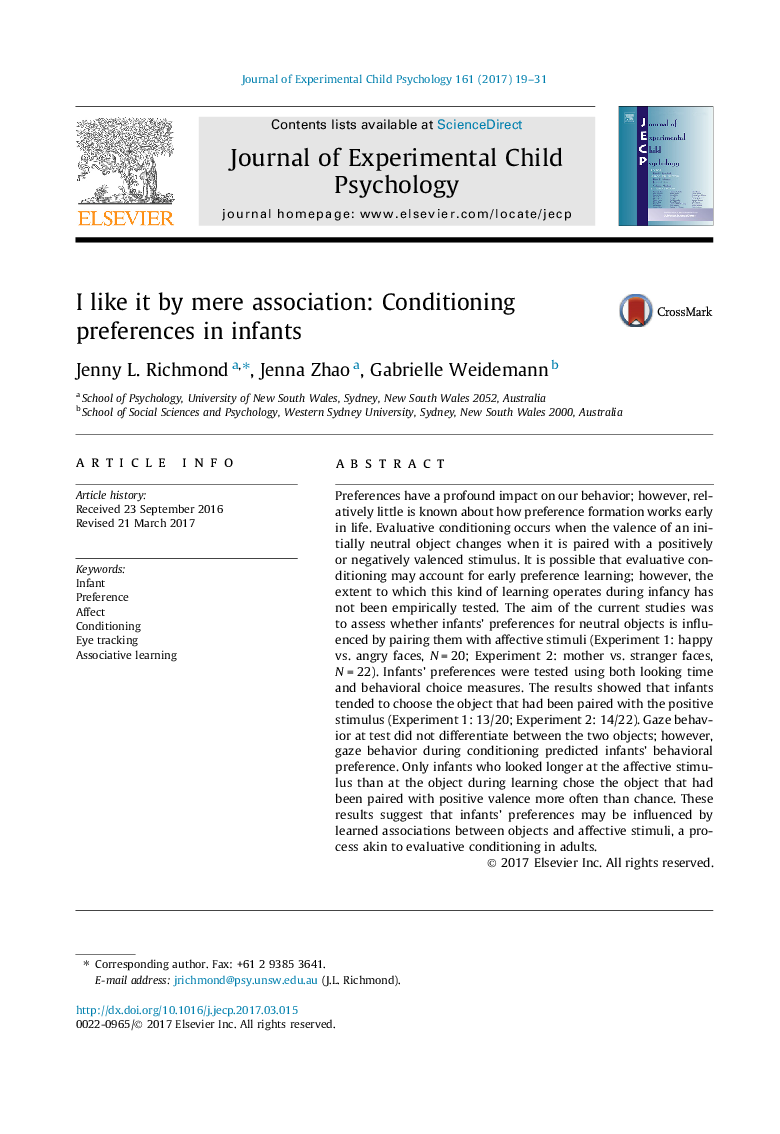ترجمه فارسی عنوان مقاله
من آن را فقط با ارتباط دوست دارم: ترجیحات تهویه در نوزادان
عنوان انگلیسی
I like it by mere association: Conditioning preferences in infants
| کد مقاله | سال انتشار | تعداد صفحات مقاله انگلیسی |
|---|---|---|
| 159074 | 2017 | 13 صفحه PDF |
منبع

Publisher : Elsevier - Science Direct (الزویر - ساینس دایرکت)
Journal : Journal of Experimental Child Psychology, Volume 161, September 2017, Pages 19-31
ترجمه کلمات کلیدی
نوزاد ترجیح، تاثیر می گذارد، تهویه مطبوع، ردیابی چشم، یادگیری وابسته
کلمات کلیدی انگلیسی
Infant; Preference; Affect; Conditioning; Eye tracking; Associative learning;

